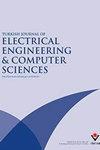FuzzyCSampling: A Hybrid fuzzy c-means clustering sampling strategy for imbalanced datasets
IF 1.5
4区 计算机科学
Q4 COMPUTER SCIENCE, ARTIFICIAL INTELLIGENCE
Turkish Journal of Electrical Engineering and Computer Sciences
Pub Date : 2023-11-30
DOI:10.55730/1300-0632.4044
引用次数: 0
Abstract
: Classification model with imbalanced datasets is recently one of the most researched areas in machine learning applications since they induce to the emergence of low-performing machine learning models. The imbalanced datasets occur if target variables have an uneven number of examples in a dataset. The most prevalent solutions to imbalanced datasets can be categorized as data preprocessing, ensemble techniques, and cost-sensitive learning. In this article, we propose a new hybrid approach for binary classification, named FuzzyCSampling, which aims to increase model performance by ensembling fuzzy c-means clustering and data sampling solutions. This article compares the proposed approaches’ results not only to the base model built on an imbalanced dataset but also to the previously presented state-of-the-art solutions undersampling, SMOTE oversampling, and Borderline Smote Oversampling. The model evaluation metrics for the comparison are accuracy, roc_auc score, precision, recall and F1-score. We evaluated the success of the brand-new proposed method on three different datasets having different imbalanced ratios and for three different machine learning algorithms (k-nearest neighbors algorithm, support vector machines and random forest). According to the experiments, FuzzyCSampling is an effective way to improve the model performance in the case of imbalanced datasets.FuzzyCSampling:不平衡数据集的混合模糊 c-means 聚类采样策略
:不平衡数据集分类模型是最近机器学习应用中研究最多的领域之一,因为它们会导致低性能机器学习模型的出现。如果目标变量在数据集中的示例数量不均衡,就会出现不平衡数据集。针对不平衡数据集最普遍的解决方案可分为数据预处理、集合技术和成本敏感型学习。在本文中,我们提出了一种新的二元分类混合方法,名为 "模糊采样"(FuzzyCSampling),旨在通过集合模糊均值聚类和数据采样解决方案来提高模型性能。本文不仅将所提方法的结果与建立在不平衡数据集上的基础模型进行了比较,还将其与之前提出的最先进解决方案欠采样、SMOTE 过度采样和边界 Smote 过度采样进行了比较。比较的模型评估指标包括准确率、roc_auc 分数、精确度、召回率和 F1 分数。我们在具有不同不平衡比率的三个不同数据集和三种不同的机器学习算法(k-近邻算法、支持向量机和随机森林)上评估了全新方法的成功率。实验结果表明,模糊采样是提高不平衡数据集模型性能的有效方法。
本文章由计算机程序翻译,如有差异,请以英文原文为准。
求助全文
约1分钟内获得全文
求助全文
来源期刊

Turkish Journal of Electrical Engineering and Computer Sciences
COMPUTER SCIENCE, ARTIFICIAL INTELLIGENCE-ENGINEERING, ELECTRICAL & ELECTRONIC
CiteScore
2.90
自引率
9.10%
发文量
95
审稿时长
6.9 months
期刊介绍:
The Turkish Journal of Electrical Engineering & Computer Sciences is published electronically 6 times a year by the Scientific and Technological Research Council of Turkey (TÜBİTAK)
Accepts English-language manuscripts in the areas of power and energy, environmental sustainability and energy efficiency, electronics, industry applications, control systems, information and systems, applied electromagnetics, communications, signal and image processing, tomographic image reconstruction, face recognition, biometrics, speech processing, video processing and analysis, object recognition, classification, feature extraction, parallel and distributed computing, cognitive systems, interaction, robotics, digital libraries and content, personalized healthcare, ICT for mobility, sensors, and artificial intelligence.
Contribution is open to researchers of all nationalities.
 求助内容:
求助内容: 应助结果提醒方式:
应助结果提醒方式:


